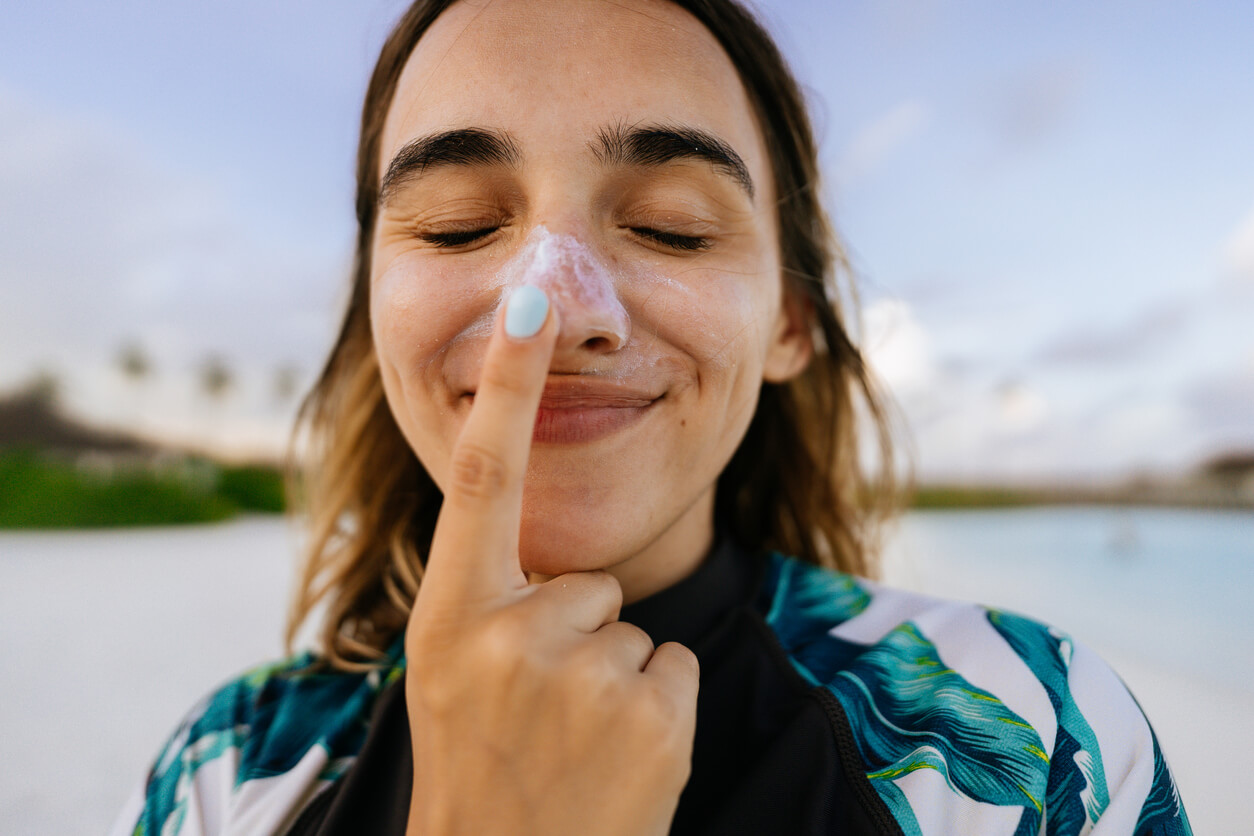Skin protects the body in many different ways. It is the first layer of defense against bacteria and environmental hazards. It can also give important clues regarding your overall health by alerting you to potential health problems, such as skin cancer.
Looking after your skin helps to keep it healthy and reduces your risk of developing a condition like skin cancer.
Tips For Healthy Skin
Keep Skin Clean
Washing your skin is important for hygiene reasons, but too much washing can lead to dry, cracked skin. If the skin barrier is broken, it is a potential entry point for germs and bacteria, which can lead to complications such as infections. Ensure you wash your skin in warm but not hot water, and use mild cleansers and soaps that don’t irritate the skin. Try not to scrub the skin.
Stay Well-Hydrated
Drinking plenty of water is as important for your skin as it is for your insides. Drinking enough fluids helps keep moisture within the skin, preventing it from drying out.
Treat Dry Skin
Using gentle moisturizers, creams, and lotions regularly helps to prevent dry skin. Avoid heavily perfumed products, which can exacerbate dryness. If you suffer from chronic dryness or have dry, itchy, red, or brown patches of skin that bleed or ooze when scratched, visit your doctor. This could be a skin condition, such as eczema, dermatitis, or psoriasis, and it likely needs a treatment plan.
Limit Time in The Sun
The sun is an important source of vitamin D, essential for keeping bones healthy, however, over-exposure to the sun’s ultraviolet (UV) rays is the most common cause of skin cancer. A majority of skin cancers can be prevented through sun protection from an early age. Although it isn’t always the case, skin cancer often develops in areas of skin that are most frequently exposed to the sun, such as the face, lips, ears, arms, and chest. Avoid intense sun exposure, particularly between the hours of 10am and 4pm, and if you are out for the day, take regular breaks out of the sun.
Wear Sunscreen
To protect your skin from sun damage, you should wear a broad-spectrum water-resistant sunscreen, with a sun protection factor (SPF) of at least 30, to all exposed skin. Lips should also be protected with lip balm with SPF of 15 or over. If you’re outdoors for the day, reapply sunscreen at least every 2 hours, and after being in the water.
Wear Protective Clothing
If you are spending long periods in the sun, wear suitable clothing to protect yourself from sun damage, such as a wide brimmed hat, long sleeved shirt or pants, and sunglasses with UV protection. Encourage children to wear clothing with a UV protection factor.
Avoid Tanning Beds
Tanning beds and sun lamps emit the same harmful UV radiation as the sun. They can be more dangerous in that they remove the UV radiation that causes your skin to burn. Because of this, you stay in them longer and get more harmful UVA radiation that significantly increases your risk of developing skin cancer, particularly melanoma.
Reduce Stress Levels
Stress can be harmful to your skin, as well as other body systems. It can cause a chemical response in the body that makes skin more sensitive and prone to problems. If you have a skin condition such as eczema or psoriasis, stress can trigger a flare-up or make symptoms worse. Chronic stress causes the body to produce cortisol, which can increase oil production in the skin glands, leading to potential problems such as blocked pores and acne.
Get Plenty Of Rest
Sleep is essential for overall health and well-being. It is also important for skin health, because a lack of sleep can cause skin to age quicker. Skin can become damaged through lifestyle and environmental factors, but during sleep, blood flow increases and new collagen is created, which is important for skin repair. A lack of sleep prevents the skin from repairing itself and can also cause an increase in cortisol. Aim to get 7-8 hours of sleep every night.
Speak Up if You Are Worried
It is estimated that around 9,500 people are diagnosed with skin cancer every day in the U.S. alone, and as many as one in five Americans will develop skin cancer during their lifetime. If you notice any unusual skin changes, or changes to existing moles, you should visit your doctor as soon as possible, as it may be a sign of pre-skin cancer or skin cancer. Common features of a possible mole or skin concern, include:
- Asymmetry
- Border irregularity
- Color variation
- Diameter >6 mm
- Evolving or changing skin, such as becoming elevated, painful, ulcerated, or itchy, or burning or bleeding skin
How Can A Dermatologist Help?
Dermatologists are medical doctors who specialize in conditions involving the skin, hair, and nails. They are also trained in the diagnosis and treatment of skin cancers. If you are concerned about a skin condition, or have noticed unusual skin changes, a dermatologist can carry out a full evaluation of your condition. Skin cancer is one of the most treatable types of cancer, especially when detected early.
A dermatologist can provide a range of effective treatment options for both skin cancer and other skin conditions. They also offer a range of cosmetic treatments that are designed to address aesthetic issues to keep your skin looking and feeling its best.
Dermatologists in Georgia
At Georgia Skin Cancer & Aesthetic Dermatology, we offer a range of advanced techniques and technology to help you achieve and maintain healthy skin. If you have a skin problem or worrying skin symptoms, visit our expert dermatologists for a consultation. We focus on three main areas of dermatology: general dermatology, aesthetic dermatology, and highly-effective treatments for skin cancer.
Call us today at (706) 543-5858 to learn more about our services, or you can use our convenient online Book Appointment form.
